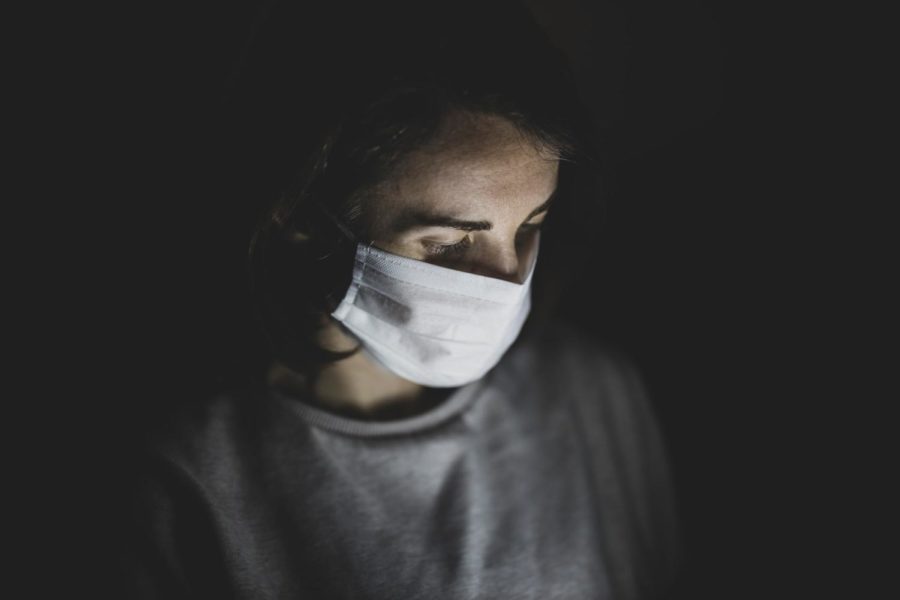Editorial: Ableism and ageism during a pandemic
February 2, 2021
The past year of this pandemic shed light on the many gaps and inequalities that exist today.
COVID-19 did not create or cause these inequalities but merely helped reveal how deeply entrenched these problems are within our country.
We entered phase 1B of COVID-19 vaccine distribution Feb. 2. During this phase, individuals who are
-
Over the age of 65
-
First responders
-
Living in residential facilities or group settings (excluding dorms)
-
Specific government officials
-
Correctional facility staff and
-
Incarcerated
are all eligible to receive the vaccine. Notably absent from this list, high-risk individuals who are between 16-64 and who do no fulfill any other requirements — such as living in a residential facility — will not be eligible until the vaccine is widely available for the general public.
While prioritizing some people over others is a necessary aspect of vaccine distribution, the fact that millions of high-risk individuals will continue to be left out of key protections is an effect of a larger problem within the pandemic.
For the last nine months, there’s been a focus on getting healthy and abled people to care about COVID-19 by showing them that yes, they can get sick too. “It’s not just old and immunocompromised people! Young people can get sick too!”
Yes, young, healthy, abled people can also get incredibly sick and even die from COVID-19. This is a fact based on evidence gathered throughout the pandemic. And yes, we need to make sure that everyone understands and cares about the dangers of this virus.
However: the idea that it’s not “just” high-risk people impacted is devaluing in itself. The implication here is that we should care about this virus because it impacts everyone — suggesting that had COVID-19 only impacted high-risk people, then it wouldn’t matter as much.
The widespread rhetoric that the lives of the elderly and people with chronic illness or disabilities matter less is ableist and ageist, two concepts that are more visible than ever during this pandemic.
So what exactly are ableism and ageism? Ableism is the “discrimination of and social prejudice against people with disabilities based on the belief that typical abilities are superior.” Ableism is everywhere in our society and more prevalent than ever during the COVID-19 pandemic. This is shown most clearly in our rhetoric regarding the pandemic. On one side, people dismiss the virus as something that affects only those with underlying health conditions. On the other side, we are encouraging healthy and abled people to care about the virus because it doesn’t just affect high-risk individuals.
Both of these viewpoints are problematic. Ageism, “the stereotyping and discrimination against individuals or groups on the basis of their age,” presents itself in a similar way: it’s either “only old people have to worry” or “not just old people have to worry.”
This type of rhetoric devalues the lives and livelihoods of the elderly and people with underlying health conditions. Their lives have worth, period. There is no “only” or “just.” We shouldn’t care about this pandemic because it also impacts us.
Ableism and ageism persist in other, more tangible ways as well. This includes a disparity in access to health care, discriminatory medical rationing policies and, as seen earlier in this editorial, unequal access to vaccinations.
It’s not just those who are ineligible that are having issues getting a vaccine. There are huge logistical hurdles to simply making an appointment for a vaccine, and these hurdles are largely impacting older adults. Some states are vaccinating those 75 and older, despite recommendations from the federal government to vaccinate anyone 65 and older. Other states, like Florida, prioritized those 65 and older but made the guidelines so confusing that some adults were unable to get a vaccine despite being eligible.
Our rhetoric matters. As individuals, we can’t change the way our government prioritizes some and excludes others. We can, however, change the way we speak about the virus and its impact. We need to take this seriously, not because it also impacts healthy, young and abled people, but because close to 60 percent of Americans are at a higher risk of becoming severely ill.
We need to acknowledge that throughout this pandemic, older adults and those with underlying health conditions have been devalued and ignored. There is no “just” or “only” when it comes to COVID-19. Everyone, regardless of their age or ability, deserves respect and equal access to critical resources.

















